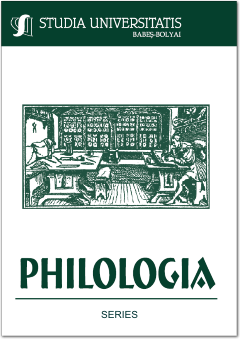THE STRANGE AND FAMILIAR ETERNITY. THE EXPERIENCE OF GOD IN CONTEMPORARY HUNGARIAN LYRICAL WORKS
THE STRANGE AND FAMILIAR ETERNITY. THE EXPERIENCE OF GOD IN CONTEMPORARY HUNGARIAN LYRICAL WORKS
Author(s): László Szilárd SzilveszterSubject(s): Language and Literature Studies, Studies of Literature, Hungarian Literature
Published by: Studia Universitatis Babes-Bolyai
Keywords: Hungarian poetry; contemporary literature; transcendence; faith and doubt; Christianity;
Summary/Abstract: The Strange and Familiar Eternity. The Experience of God in Contemporary Hungarian Lyrical Works. While in the second part of the 20th century Hungarian literary criticism, the topic of sacrality in lyrical poetry was quite emphatically present in many scientific studies (e.g. in György Rónay’s, László Rónay’s, György Rába’s, and Éva Cs. Gyimesi’s works), this area has been unfairly neglected for the past few decades. We might say that, apart from a few lucky exceptions, among the contemporary lyrical analyses, one can hardly find a study that focuses mainly on the various motifs of Christianity, the aesthetic-poetic characteristics of transcendental experience, and the forms of expression of faith and doubt. The essay examines transcendental experiences in contemporary Hungarian poetry, and seeks to identify that attitude of the modern author, which can be described as a dialog-based approach to the Christian tradition. In this paper, we propose to present those aesthetic-poetic initiatives in István Bella’s, István Ágh’s, and Imre Oravecz’s lyrical works, in which the relations between man and sacrality are reevaluated, as well as the role of poetry and the entire modern culture.
Journal: Studia Universitatis Babes-Bolyai - Philologia
- Issue Year: 65/2020
- Issue No: 3
- Page Range: 321-340
- Page Count: 20
- Language: English

